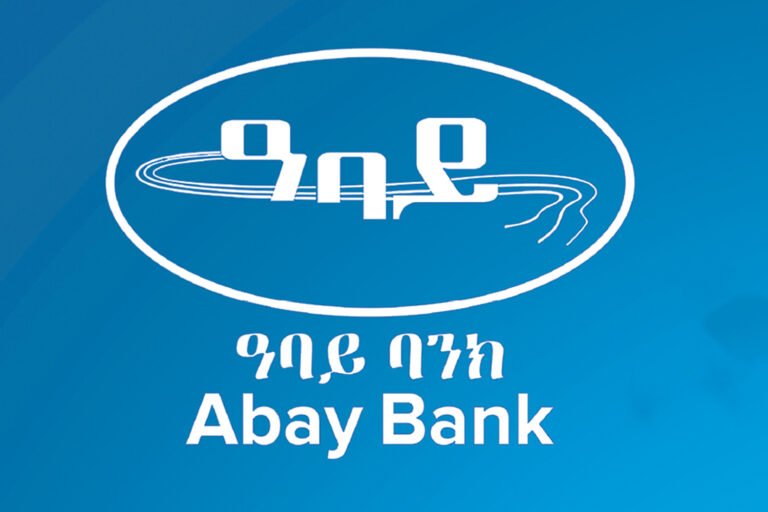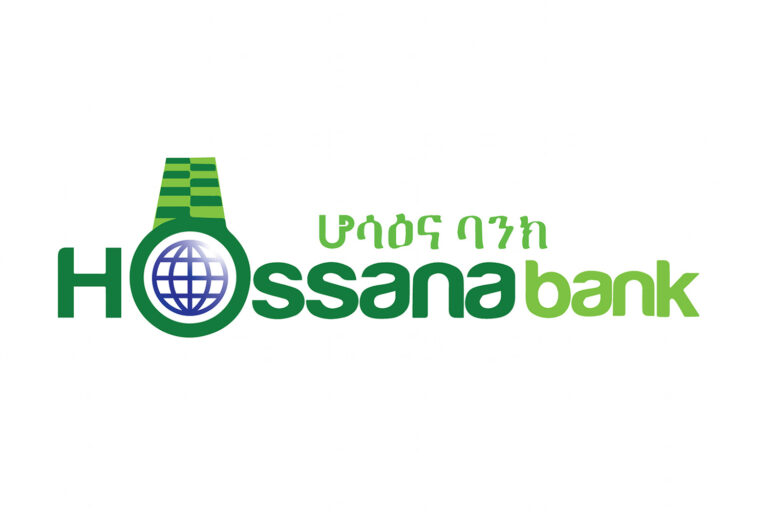Abay Bank has introduced a new electro payment solution called the Uni-cash system.
According to Abay Bank the system will enable customers to make all kinds of payments including school fees with digital technologies.
Integrated with the latest version of the core banking system the bank has launched the payment system by collaborating with a local technology group called Atlas computer.
Over the past couple of months, the government has been working on digitizing government services by introducing electronic transactions.
The ten years old Abay Bank assets have reached 22 billion birr with an overall capital of 3.3 billion birr and 17.6 billion birr in deposits. According to the bank, it has up to one million customers over the country. Abay also provides 12 different services of loan.
Abay Bank’s new electro payment solution
New documentary film sheds light on Ethiopia’s elephant crisis
Ethiopia has already lost its black rhino, now it is losing its elephants
A new documentary film “Ethiopia’s Elephant Crisis,” by award-winning American journalist and filmmaker Antoine Lindley, brings to the forefront the challenges that Ethiopia faces in wildlife conservation, especially its efforts to save its endangered elephants.
Commissioned by Ethiopian Wildlife Conservation Authority with support of UNDP and GEF , the ground breaking 40-minute documentary film follows filmmaker/journalist Antoine Lindley to some of the most remote parks of Ethiopia to tell the story of the challenges and conservation efforts to save what could be Ethiopia’s last elephants.
Since the 1980’s Ethiopia has lost 90% of its elephants. Today, Ethiopia’s elephant population is estimated to be less than 1,900; that number is rapidly dropping due to poaching for ivory, habitat loss, and human-elephant conflicts.
“I made this film to give a voice for Ethiopia’s endangered elephants,” said filmmaker Antoine Lindley. It is one thing to read or hear about the challenges facing elephant conservation in Ethiopia, but to actually document it through film is a powerful visual tool that I hope will bring more awareness and solutions.”
The film not only weaves together an engaging storyline of wildlife survival and conservation efforts, it also displays captivating sweeping beautiful landscapes while taking viewers on an adventurous visual safari through Ethiopia’s dense riverine forests, woodlands, and lush green savannahs.
“Apart from storytelling, it was also important for me to take a cinematically sophisticated approach so that the viewers can feel like they were along on the journey,” added Antoine.
“The documentary provides a glimpse into the magnificent landscapes of our country, the devastating threats facing elephants across Ethiopia, and the front line heroes and community members living alongside them, protecting them and risking their lives every day. Said Greta F. Iori, Regional Lead Horn of Africa, Elephant Protection Initiative. Will we be able to save our continents’ vital landscape engineers and put an end to the brutal looting of these natural treasures for generations to come?”
“Ethiopia’s Elephant Crisis” is set to be released on October 2, 2020 for domestic and international distribution.
Antoine Lindley is an award-winning American journalist and documentary filmmaker; he has more than 20 years in the media industry and produced over 24 documentary films on Ethiopia.
EEA’s analysis and advice to government on demonetization
Ethiopian Economic Association /EEA/ has urged government to strengthen its directives and regulations to limit cash holding and withdrawal to the success of the demonetization.
Last week, the government announced the replacement of old birr notes with new notes which have enhanced security features and other distinctive elements. The new currency notes replace the 10, 50 and 100 notes while an additional 200 birr note was also unveiled.
According to EEA, the introduction of the new birr notes has both financial and real economic implications. Demonetization can become a stronghold if it is accompanied by effective regulations and a keen follow-through of the recent directives presented by the National bank of Ethiopia to limit cash amount of holding and withdrawal.
In promoting use of non-cash payment instruments and ensuring safety and efficiency of the payment system on May 2020, Ethiopian Central Bank issued a directive limiting cash withdrawal for individuals to businesses. The move was aimed at tackling tax evasion and encouraging a more efficient use of cash. Under the directive, individuals cannot withdraw more than 200,000 birr per day the ceiling for total withdrawal in a month has also been set at one million birr, also for juridical persons the directive allows 300,000 birr per day withdrawal and 2.5 million birr per month.
“Demonetization could contribute to accelerating digitalization since Fintech is the future and it could also reduce transaction costs,” states EEA’s press statement.
As the association articulate the enforcement of these directives is crucial to the success of the demonetization.
The government disclosed that 2.9 billion birr notes with the value of 262 billion birr have been printed. For printing the money the government has paid 3.7 billion birr which on average means 1.275 birr per note. The government has said that replacement exercise should be completed within three months and anyone who has more than 100,000 birr should make the change within the period of a months’ time.
However, according to the association the replacement needs to be sped up. “Currency in circulation may decline due to slow replacement of notes which requires speedy implementation of demonetization within a short period of time,” Reads the press statement of the association. Apart from the association banks have also been raised the issue of timing and both agree that the time should be sped up. According to Abie Sano, president of Commercial Bank of Ethiopia and current head of Bankers Association, the period should be reduced to one month from three months of currency changing time. He added that the time frame that is given for those who hold more than 100,000 birr should reduce to 15 days and the amount to drop to 50,000 birr.
According to the association the decision to change the notes could have both short term and long term impact, including a surge in deposit and saving and population with bank accounts increases, which could increase financial inclusion.
As the association states the newly introduced 200 birr note could have economic consequences as it could result in a shift of preference towards holding currency, “The optimal mix of the currency denomination has macroeconomic consequences. The introduction of higher denomination (200-birr notes) may result in a shift of preferences towards holding currency instead of deposits. The accumulated money, in cash form, if channeled in the banking system will be more productive. It could contribute to curbing liquidity shortages, and become a source of investment finance,” the press statement states.
According to the plan those who come up with 10,000 birr should save their money in banks, while banks still insist that cash could go as low as 5000 birr for saving.
In the medium term impact according to the association the decision could increase governmental revenues and taxable money and bring more money to the business in the tax net. Improve the effectiveness of monetary policy instruments (as more money moves to the banking sector) .
Prime Minister Abiy Ahmed has claimed the step will help to combat hording, counterfeiting, corruption and other economic problems necessary to salvage the country’s fractured economy.
Introducing Hossana, the soon-to-be newcomers
Hossana Bank S.C is a new bank under formation set to join the evergrowing banking sector. By organizing all of its capital, financial, technological, and human resources, the bank has reached the final stages of “under-formation” status and is awaiting finalization from the national bank.
Hossana is trying to come up with the most known elites of the political, social-economic, and diplomatic spheres of the country. A list that includes Professor Beyene Petros, a renowned politician (who is now an appointed chairperson of the organizing committee) and diplomats such as Ambassador Tesfaye Habisso.
Erssido Lendebo /MD/ and project manager of Hosanna bank has further stated that the bank, apart from organizing capital, is keen to focus on the knowledge that will make it a success.
“We are an Ethiopian Bank with vast diaspora involvement coming from South Africa, America, Europe, and the Gulf states,” he adds.
The bank aims to collect 2 billion birr as capital with 25 percent of its initial paid up capital; the lowest capital to the formation of the bank based on the national bank regulation. The bank is planning to get the capital from both the Ethiopian and Diaspora communities.
Hossana Bank is one of the 17 banks joining the banking industry. According to Erssido, the bank will start operations after one year; most likely in September 2021. “We are working to finalize the whole process as we prepare to become operational within one year,” said Erssido.
Hosanna has officially started selling shares in September 2020 in four banks including the Commercial bank of Ethiopia, the Bank of Abyssinia, and Awash Bank after getting pre-formation licenses from the NBE.
With a per-value of 1,000 Birr to one share, the under-formation bank has limited buyers to a minimum of 20 shares at a cost of 20,000 Birr and amaximum of 100,000 shares at the price of 100,000,000 Birr Shares wil be sold till the coming February.
“We are planning to be unique in three ways,” says Erssido “that is, to be technology-driven, to be involved in small and medium agribusinesses, and to provide a bank training institute to expand job opportunities for young graduates.”
As he stated, besides forming the bank, Hossana is also planning to launch its own banking and financial training institute, “All of the above give us a competitive edge and market opportunities” said Erssido.
Currently, there are 18 operational banks in the country with over 6000 branches. 16 of these being private banks and 2 public. There are also close to a dozen different banks that are in the process of formation and are currently availing shares for public subscription. These include Goh Mortgage, Selam, Sheger, Ahadu, and Zemzem.






